- Home
- Diana Palmer
Nora Page 14
Nora Read online
Page 14
Nora gasped and covered her waist, while her father’s hands clenched at his sides.
Edward surveyed the general area and shrugged. He put on his hat carefully. “Well, I wish you joy,” he told Nora with a venomous smile. “When you tire of living like a slave, I might give you a second chance, Eleanor. If you are still…able to marry again.”
That was a veiled reference to the fever, and Nora paled. Despite the doctor’s reassurance, she had no real optimism about the future. She was afraid not only for herself, but for her baby.
“Someday God will pay you back for your part in my suffering, Edward,” she said in a whisper. “I promise you. Cruelty finds its own punishment, eventually.”
Edward only laughed, until he noticed the movement Cal made. He moved quickly toward the door. “I must be about my business. Good day.”
When he was gone, only the four of them remained.
“I have…had Mary make coffee,” Cynthia began.
Her husband’s face was flushed, and the cheek that Cal’s fist had found was very red. He turned to his daughter and looked at her with icy contempt. “Get your bags packed and get out of my house, you hussy,” he told Nora. “You will never receive another penny of support from me. You can turn to your…lover for that. And for whatever else you need. Never come here again. You have disgraced me!”
He left the room, slamming the door behind him.
Cynthia was in tears. “Oh, Nora, how could you do this to us?” she asked miserably. “We tried to raise you to be a good girl, you were brought up in a Christian manner….”
Cal had had enough. Having seen her home life, he understood Nora much better, although Summerville’s veiled references still puzzled him, as did Nora’s parting remark to the man. He would have to ask her what that was all about, when he had the chance. Right now, getting her out of this hellhole was most imperative. She looked sick.
“Get your things and let’s go, Nora,” Cal told her gently, helping her up from the sofa. He couldn’t remember a time when he’d felt more protective, or possessive, of anyone.
Nora didn’t argue. She went past her mother, sick at heart and trembling all over. Fortunately most of her bags were still packed from her trip overseas, and all Albert had to do was take them out onto the street where Cal obtained a carriage. She left behind the things that were unpacked, without regret.
Cynthia walked out with them. “Oh, Nora, how could you!” she wailed. “How could you shame us so, after all your father and I have done for you! How ungrateful you are!”
Nora looked at the older woman as if she had never seen her before. She was being made to feel like a condemned prisoner, without friend or solace in all the world. She lifted her chin proudly.
“You never defended me,” she accused. “All my life, anything he chose for punishment met with your approval. Even this,” she added, holding her red cheek.
Cynthia wrinkled her handkerchief. “He is my husband,” she said miserably. “It is my lot in life to do as he wishes. Besides, Nora, he is right, you know—you have ruined us.”
Nora bristled. “And it is your social status, and Father’s, which matters most to you, is it not?” she asked quietly. “My condition and that of my child does not concern either of you. I am outcast, discarded because I might cause embarrassment. I tell you that no daughter of mine would ever suffer such a fate in a similar condition, not if I were hanged from the nearest oak limb for defending her!”
Cynthia paled and clutched her handkerchief. “Oh, my dear, you do not understand. Your father’s business, his wealth—”
“It says in the Bible that it hardly profits a man if he gains the whole world and loses his own soul, doesn’t it?” Nora asked. She watched the flush run over her mother’s delicate features before she turned and was helped into the buggy by Cal, who had never been prouder of her.
He took the reins in hand with a cold, speaking glance at her mother. “One day,” he said very quietly, “you will have much cause to regret your actions. And so will your husband.” He nodded politely to her mother, without speaking, and started the horse moving. He was thinking ahead, to the time when Nora would know the truth, and so would her family. They might be well-to-do, but their finances were a pittance in comparison with the Culhanes’.
“Don’t let her see you break down,” he said quietly when her voice broke on a sob. “You’ve got guts, I’ll give you that.” He glanced at her red-eyed face. “And you’ll need them, where you’re going.”
She didn’t reply. She wiped her tears and composed herself. Even when they were well down the street, Nora didn’t look back. That part of her life was over. Somehow she would have to learn to live in a world drastically different from her pampered one.
THEY WERE AT THE TRAIN DEPOT before she spoke. On the way, she had begun to think about Cal and what she must have cost him by pleading with him to come all this long way. Besides that, there was the position she’d placed him in, surely an uncomfortable one. He didn’t want to marry her. He had rescued her, after a fashion, but she could hardly ask him for anything more. She would have to learn to take care of herself. Was that not what being a modern woman was all about? Perhaps she could be what she had dreamed of being, despite her condition and her infirmity, if she only had the courage to defy convention and fly in the face of gossip.
“I have been a great expense to you,” she said in a drained, ghostly voice. “But I have a little money saved. I can pay for your train ticket at least.” She fought tears as she took a steadying breath. “I only needed your help to escape being forced into marriage with Edward. I will be fine. I can go to New York and find some sort of job there.”
Cal studied her profile quietly. “The child is mine.”
It was a question. Her head inclined, still without turning. “That is true,” she said. “But I don’t hold you entirely responsible. The fault was mine as well. You don’t have to sacrifice your freedom.”
He sat back in the carriage and fingered the reins, staring ahead blankly. He hadn’t planned to marry and have a family, not for a long time, if ever. This development was interfering with all his dreams. But how could he desert her now? He felt violent anger at the memory of the things her father had said to her, at the way he had hit her. How dare the man treat his only child in such a vile way? It infuriated him.
“If you could help me get my bags on the train…?” she asked.
He turned and looked at her. “The only train you’re getting on is mine. We’ll be married along the way, so that we won’t shame your kinfolk by announcing your condition to a local minister.”
She closed her eyes on a wave of shame. She hadn’t thought of that aspect of it. She would be rejoining her aunt and uncle, but in a vastly different manner. Instead of a welcome guest, she would be little more than a servant. Her pride stung bitterly at the thought. “It’s not necessary,” she began, looking for a way out.
“The child should be our primary concern, not our own welfare,” he reminded her bluntly. “It didn’t ask to be created.”
She flushed, remembering that frenzy of creation that had occurred. “You don’t want me.”
“I don’t want a wife,” he said stiffly. “But I’m not so dishonorable that I can leave you to the mercy of strangers. Come.”
She followed him to the platform, standing back while he bought tickets. Her eyes lingered on his tall, broad-shouldered form warmly, loving the strength and size and authority of him. He had an air of command about him, something she decided that he had acquired while serving his country during the Spanish-American War of ’98. But it was more than that, too. He spoke with such authority, as if he were used to people jumping when he made demands. And he hadn’t hesitated to strike her father when he attacked her. Amazing, that he had no fear of a rich man. It delighted her that he was so fearless. She knew him in a physical way, but actually she knew nothing about him.
He turned, tickets in hand, and escorted her to a seat insi
de the depot on the smooth wooden benches with their curved backs and arms. She ran her hand over the wood while she sat, waiting.
“Would you care for a soda or some tea?” he asked politely.
She smiled impishly and didn’t look up. “Actually, I think a neat whiskey would be more in line with the way I feel, except that I have never tasted spirits in my life.”
He sat down beside her, the gun thudding as it brushed the seat. He moved it carefully and leaned toward her. “Are you all right, Eleanor?” he asked gently.
Surprised, she lifted her eyes to his, tingling as she met them at closer range than she’d expected. She laughed a little nervously. “Of course. Thank you for coming—for defending me.” Her thin shoulders lifted and fell as she rested her hands in her lap. “I would have fought my own battle, had I not been so ill from the return trip.”
“You would not have been up to your father’s weight, I fear,” he said, glowering as he remembered her cheek. He touched it, lightly. “Does it still hurt?”
“It is only sore.”
“That was unforgivable,” he said tautly, stroking the soft flesh. He watched her lips part, heard her breathing quicken, and he smiled as she tried to hide the reaction he provoked. “Is this a common thing for him to do, Eleanor?” he added.
“No,” she said. “He used to use a cane on me, when I was younger, but he was never brutal,” she added quickly.
He looked shocked. “A cane!”
She shifted. “Why, yes. Isn’t it the usual thing for a child to be struck for infractions?”
His jaw tautened and his pale eyes narrowed in anger. “Not a girl child,” he said roughly. “It is outrageous!”
She smiled. “He has not done it for many years. Now he only swells up in the face and blusters at me, as a rule. He cares, in his own way. So does my mother.” She remembered their horror at her condition and their censure, and tears stung her eyes. She turned her face away to hide them.
“You were never allowed to play with dirty children, were you?” he asked suddenly.
“With those of the lower classes? Of course not,” she said at once, and watched the light go out of his face. She grimaced. “I am sorry. That was rude.”
He looked away. She had a long way to go, he thought irritably, and it was going to be a difficult road for both of them. “How about that tea?”
“That would be lovely. Is there a tea shop close by?”
“Yes. And something even better,” he added, as his sharp eyes spotted a sign hanging over a doorway just down the street. “Come.”
They left the bags with the porter, since the train was not due for an hour—at least—and he escorted Nora down the long wooden sidewalk to a small house apart from the row of shops.
“Here?” she faltered, holding back.
He nodded solemnly. “Here. We might as well get it over with,” he added under his breath.
That comment hardly alleviated Nora’s own misery as Cal led her inside.
It didn’t take very long. The justice of the peace listened to Cal’s tale of woe about the two of them having to go all the way to Texas under a cloud of scandal since they weren’t married and wanted to be. Nora’s reputation would be ruined. He mentioned nothing about her condition, but went on and on, until the justice of the peace’s little wife was in tears.
“Why, of course, I shall marry you at once!” the small, elderly man said, and his wife patted Nora’s shoulder comfortingly. “Step right in here, Mr. Barton, and we shall fill out the necessary papers.”
Cal hesitated. He was going to have to do some fancy talking here, for sure. He couldn’t marry under an assumed name, but he had no intention of letting Nora know his surname. He and the justice of the peace filled out the papers, but Nora signed before Cal’s last name was added. Cal made sure that he had the license, not her, so there was no chance that she might see her true married name.
The ceremony was very brief, just the usual marriage service, and Nora stood beside Cal—who had taken off his gun for the occasion—in a miserable silence while the words were spoken. She had always envisioned a huge society wedding with all the right people attending, and herself gowned by Worth with a spray of white roses in her hand. Here she stood with a single yellow chrysanthemum, which was the only live flower the little woman could procure for her. She was wearing her oldest gray dress, not even a white one, and had not hat or veil because she hadn’t time to search for the hat that matched this garment. In fact, the dress was already too tight in the waist; if it hadn’t been a little big and belted to fit in the past, she wouldn’t even have been able to wear it. She was pregnant, and the man at her side didn’t want her. She felt as if she were being sold into slavery, and it was her own fault. She wanted to bawl.
And she did, when the justice of the peace declared them man and wife. She didn’t even have a wedding band. Nor had Cal moved one step nearer when the little man invited Cal to kiss her.
Cal looked down at his reluctant bride and saw the tears rolling past her mouth. His teeth clenched. He produced a handkerchief and slowly dried the tears.
“I didn’t even have a proper dress, whether or not I deserved it,” she whispered miserably, “and no bridesmaids or a bouquet or a minister…”
Cal’s face froze. “Well, you have a husband, at least,” he said sharply. “A woman in your condition should be glad of one!”
She gnawed almost through her lower lip and couldn’t look up. He was furious. She felt the anger as a tangible thing.
“There, there,” the justice of the peace comforted her, “it’s a very emotional moment, isn’t it?”
Cal said nothing. Her hasty words had made him aware once more of her condescending attitude toward him. Had he not precipitated this crisis by seducing her, he felt certain that she would never have married him. She would have been counting his money and checking the social register before she agreed to consider it.
Summerville was much more her sort. But she found the man repulsive, didn’t she? And, too, there was the matter of those veiled remarks she had made about the man. He glanced at her as she stood talking to the minister’s little wife, his eyes narrowing on her slender body. She was pretty and elegant, but except for that afternoon in the line cabin, he had thought her oddly cold. She had been a surprise and a delight to him, with her unexpected complexities. He remembered so vividly the way she had comforted him when he returned from the devastation of Galveston. But he also remembered her attitude toward his work and his clothes. She had been taught to be a snob. He wondered if she could be untaught.
His parents would never understand this lightning marriage. They would have to be told, and his mother would be outraged that her son had ruined a decent woman and had to marry her to save her reputation. She would be good for a fifteen-minute tirade when he finally went home. And as he looked at Nora’s shattered face, he wondered how she was going to react to the news that she’d married a very wealthy man.
He would have to tell her eventually. But not right away. He couldn’t risk letting the cat out of the bag until he finished gently guiding her uncle into more modern methods of cattle production. There were still a few details he had to work out with Chester. Then Miss Eleanor Marlowe—no, Mrs. Eleanor Culhane if she did but know it—was in for a few surprises.
He took her to the small tea shop and ordered sandwiches as well.
“I could not eat a thing,” she said wearily.
“But you will, Mrs. Barton,” he replied. “I want a healthy son.”
She flushed and glared at him. “Have you told God yet?”
He chuckled at her unexpected fire. “Not yet,” he admitted. His pale eyes narrowed on her thin face. “You haven’t had an easy time of it, have you?” he asked with quiet sympathy. “The trip overseas must have been an ordeal, coming and going. And I gather that Summerville was present all the time?”
She shook her head as she stirred the tea in the china cup with a distinctive Rogers sil
ver spoon. “He found out from my parents that I was in London and followed me there. His family was friendly with my relatives, the Randolphs, who invited him to stay.” She lifted her eyes to meet his. “I detest him. Was it Melly who told you about Africa and what happened there?”
He scowled. “No. What about Africa?”
Her hand stilled. “But you said that you knew about Edward.”
“I knew that he was in Europe with you,” he said flatly.
That put a different complexion on things. She didn’t know what to say now. It was easy enough to tell him, but why put that burden on him, along with the others? Why inflict a worse ordeal than he already had to endure by informing him that he had married an invalid? His poor fortunes were worsening, because now he would have to support her. If she became ill, what then? How would he work and care for her? He was a proud man. It would devastate him. She stifled a sob as she realized the misery she had caused everyone by not being strong enough to refuse him in the cabin that day.
“Are you thinking about the wealth you gave up to marry me and regretting your hasty decision?” he asked when he heard the small sound and misinterpreted it. “Summerville might take you yet.”
“You are my husband now,” she began.
“And divorce is as unwelcome a prospect as unwed motherhood to you and your family, of course,” he said curtly.
“Oh, you infuriate me,” she retorted with a cold glare. She sipped her tea, enjoying its warmth. “I was looking forward to a grand party at Thanksgiving with my family and friends at our home, and now I shall eat beef in a cabin instead!” she said with deliberate hauteur, striking back at him where she sensed it would hurt most.
“Not beef, my dear,” he informed her blandly. “Turkey. Wild turkey. I trust you can cook. I have no culinary skills.”

 A Cattleman's Honor
A Cattleman's Honor For Now and Forever
For Now and Forever Texas Proud and Circle of Gold
Texas Proud and Circle of Gold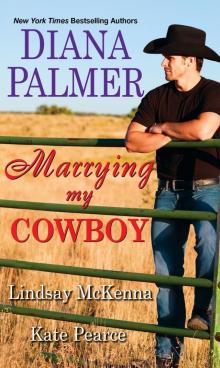 Marrying My Cowboy
Marrying My Cowboy Wyoming Heart
Wyoming Heart Christmas Kisses with My Cowboy
Christmas Kisses with My Cowboy Wyoming True
Wyoming True The Rancher's Wedding
The Rancher's Wedding Mercenary's Woman ; Outlawed!
Mercenary's Woman ; Outlawed! Long, Tall Texans: Stanton ; Long, Tall Texans: Garon
Long, Tall Texans: Stanton ; Long, Tall Texans: Garon Lawless
Lawless Blake
Blake Escapade
Escapade Fire Brand
Fire Brand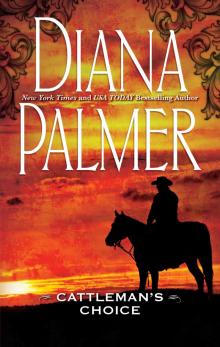 Cattleman's Choice
Cattleman's Choice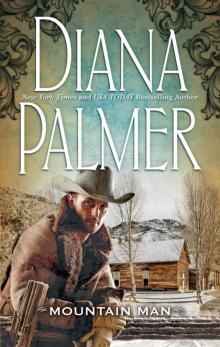 Mountain Man
Mountain Man Long, Tall and Tempted
Long, Tall and Tempted A Love Like This
A Love Like This Miss Greenhorn
Miss Greenhorn Magnolia
Magnolia Lord of the Desert
Lord of the Desert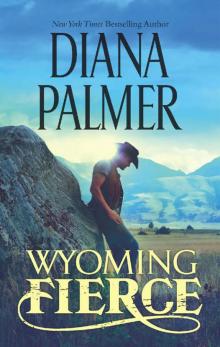 Wyoming Fierce
Wyoming Fierce True Colors
True Colors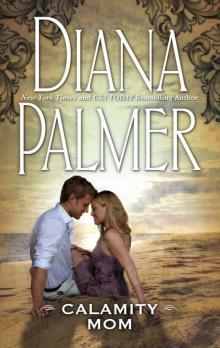 Calamity Mom
Calamity Mom The Pursuit
The Pursuit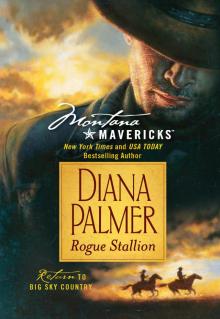 Rogue Stallion
Rogue Stallion Date with a Cowboy
Date with a Cowboy Heart of Winter
Heart of Winter Friends and Lovers
Friends and Lovers Love on Trial
Love on Trial Boss Man
Boss Man Callaghan's Bride
Callaghan's Bride Before Sunrise
Before Sunrise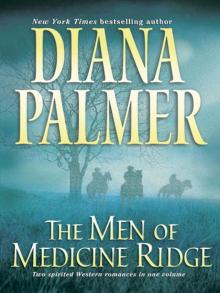 The Men of Medicine Ridge
The Men of Medicine Ridge Texas Proud
Texas Proud Wyoming Tough
Wyoming Tough Passion Flower
Passion Flower Maggie's Dad
Maggie's Dad Donavan
Donavan The Rancher & Heart of Stone
The Rancher & Heart of Stone Long, Tall Texans: Tom
Long, Tall Texans: Tom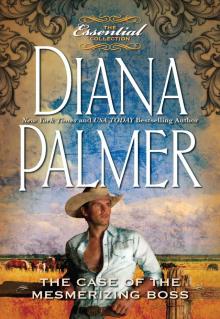 The Case of the Mesmerizing Boss
The Case of the Mesmerizing Boss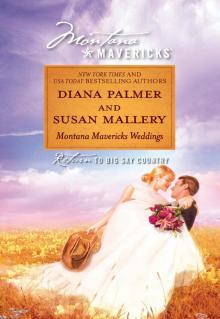 Montana Mavericks Weddings
Montana Mavericks Weddings Redbird
Redbird Wyoming Strong
Wyoming Strong Darling Enemy
Darling Enemy Love by Proxy
Love by Proxy Coltrain's Proposal
Coltrain's Proposal The Best Is Yet to Come & Maternity Bride
The Best Is Yet to Come & Maternity Bride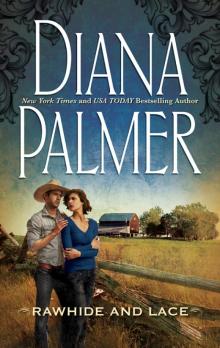 Rawhide and Lace
Rawhide and Lace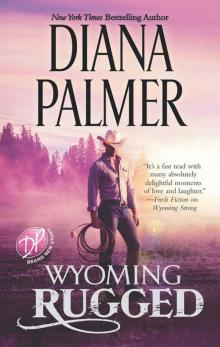 Wyoming Rugged
Wyoming Rugged Patient Nurse
Patient Nurse Undaunted
Undaunted Long Tall Texans Series Book 13 - Redbird
Long Tall Texans Series Book 13 - Redbird Outsider
Outsider Long, Tall Texans: Drew
Long, Tall Texans: Drew Long, Tall Texans--Christopher
Long, Tall Texans--Christopher Merciless
Merciless A Match Made Under the Mistletoe
A Match Made Under the Mistletoe Evan
Evan Hunter
Hunter Now and Forever
Now and Forever Hard to Handle
Hard to Handle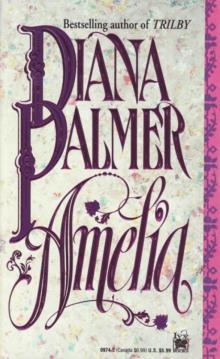 Amelia
Amelia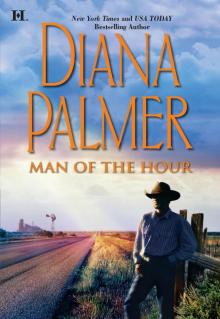 Man of the Hour
Man of the Hour Invincible
Invincible The Maverick
The Maverick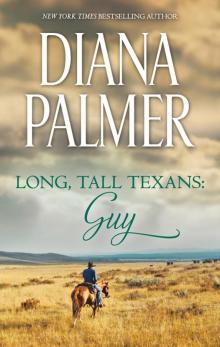 Long, Tall Texans--Guy
Long, Tall Texans--Guy Noelle
Noelle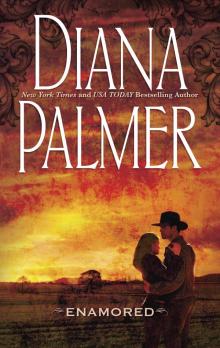 Enamored
Enamored The Best Is Yet to Come
The Best Is Yet to Come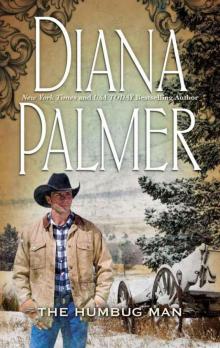 The Humbug Man
The Humbug Man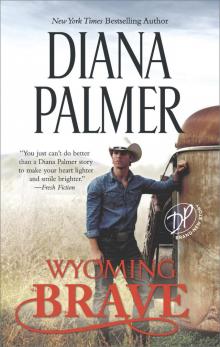 Wyoming Brave
Wyoming Brave Calhoun
Calhoun Long, Tall Texans--Harden
Long, Tall Texans--Harden The Reluctant Father
The Reluctant Father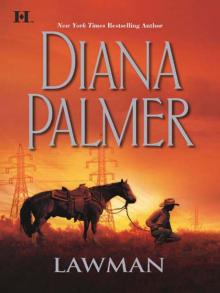 Lawman
Lawman Long, Tall Texans: Hank & Ultimate Cowboy ; Long, Tall Texans: Hank
Long, Tall Texans: Hank & Ultimate Cowboy ; Long, Tall Texans: Hank Grant
Grant Nelson's Brand
Nelson's Brand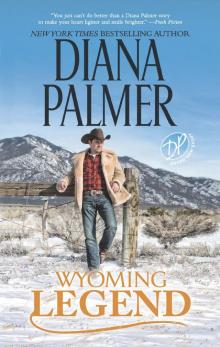 Wyoming Legend
Wyoming Legend Diamond Spur
Diamond Spur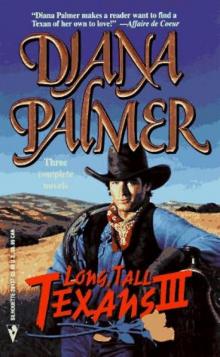 That Burke Man
That Burke Man Wyoming Bold (Mills & Boon M&B)
Wyoming Bold (Mills & Boon M&B) Heartless
Heartless Long, Tall Texans--Luke
Long, Tall Texans--Luke To Have and to Hold
To Have and to Hold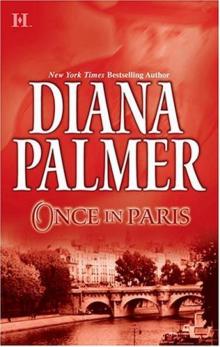 Once in Paris
Once in Paris A Husband for Christmas: Snow KissesLionhearted
A Husband for Christmas: Snow KissesLionhearted Night Fever
Night Fever Beloved
Beloved The Australian
The Australian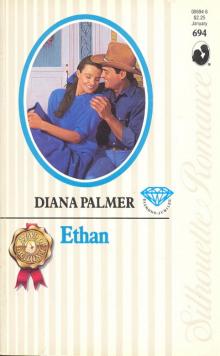 Ethan
Ethan Long, Tall Texans: Jobe
Long, Tall Texans: Jobe Bound by Honor: Mercenary's WomanThe Winter Soldier
Bound by Honor: Mercenary's WomanThe Winter Soldier Tender Stranger
Tender Stranger After Midnight
After Midnight September Morning
September Morning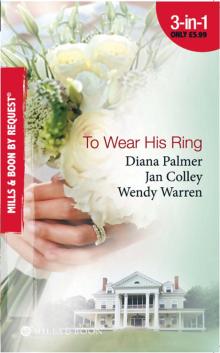 To Wear His Ring
To Wear His Ring Heartbreaker
Heartbreaker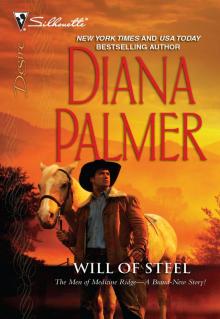 Will of Steel
Will of Steel Dangerous
Dangerous Fit for a King
Fit for a King Diamond in the Rough
Diamond in the Rough Matt Caldwell: Texas Tycoon
Matt Caldwell: Texas Tycoon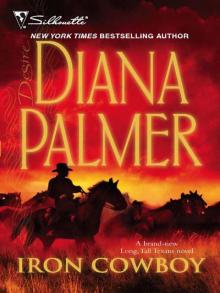 Iron Cowboy
Iron Cowboy Fire And Ice
Fire And Ice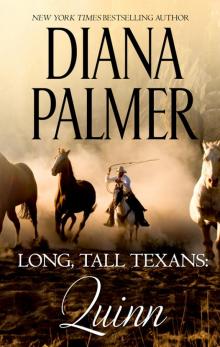 Long, Tall Texans--Quinn--A Single Dad Western Romance
Long, Tall Texans--Quinn--A Single Dad Western Romance Montana Mavericks, Books 1-4
Montana Mavericks, Books 1-4 Denim and Lace
Denim and Lace Eye of the Tiger
Eye of the Tiger The Princess Bride
The Princess Bride Long, Tall Texans: Rey ; Long, Tall Texans: Curtis ; A Man of Means ; Garden Cop
Long, Tall Texans: Rey ; Long, Tall Texans: Curtis ; A Man of Means ; Garden Cop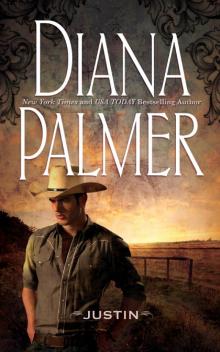 Justin
Justin Nora
Nora The Morcai Battalion
The Morcai Battalion Heart of Stone
Heart of Stone The Morcai Battalion: The Recruit
The Morcai Battalion: The Recruit To Love and Cherish
To Love and Cherish Invictus
Invictus Regan's Pride
Regan's Pride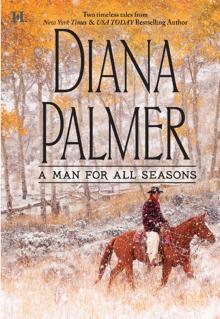 A Man for All Seasons
A Man for All Seasons Sweet Enemy
Sweet Enemy Desperado
Desperado Lacy
Lacy The Winter Man
The Winter Man Diamond Girl
Diamond Girl Man of Ice
Man of Ice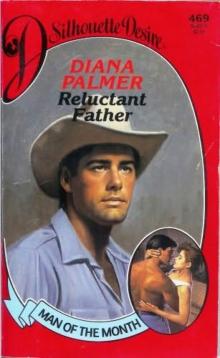 Reluctant Father
Reluctant Father Christmas with My Cowboy
Christmas with My Cowboy Love with a Long, Tall Texan
Love with a Long, Tall Texan Wyoming Bold wm-3
Wyoming Bold wm-3 King's Ransom
King's Ransom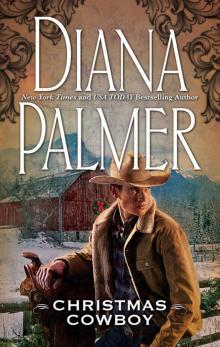 Christmas Cowboy
Christmas Cowboy Heart of Ice
Heart of Ice Fearless
Fearless Long, Tall Texans_Hank
Long, Tall Texans_Hank Unbridled
Unbridled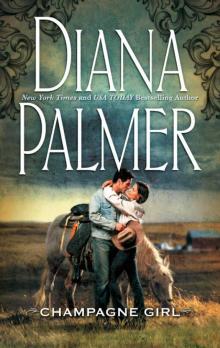 Champagne Girl
Champagne Girl The Greatest Gift
The Greatest Gift Storm Over the Lake
Storm Over the Lake Sutton's Way
Sutton's Way Lionhearted
Lionhearted Renegade
Renegade Betrayed by Love
Betrayed by Love Dream's End
Dream's End All That Glitters
All That Glitters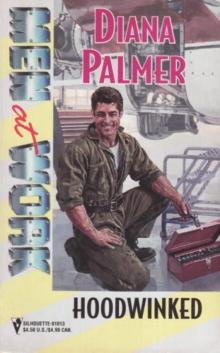 Hoodwinked
Hoodwinked Soldier of Fortune
Soldier of Fortune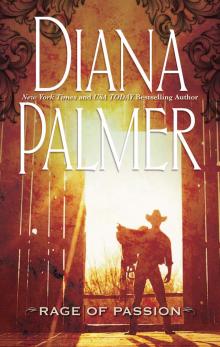 Rage of Passion
Rage of Passion Winter Roses
Winter Roses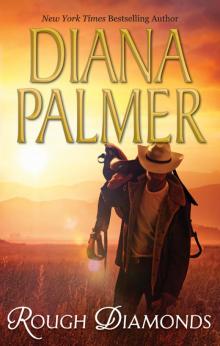 Rough Diamonds: Wyoming ToughDiamond in the Rough
Rough Diamonds: Wyoming ToughDiamond in the Rough Protector
Protector Emmett
Emmett True Blue
True Blue The Tender Stranger
The Tender Stranger Lone Star Winter
Lone Star Winter Man in Control
Man in Control The Rawhide Man
The Rawhide Man Untamed
Untamed Midnight Rider
Midnight Rider Trilby
Trilby A Long Tall Texan Summer
A Long Tall Texan Summer Tangled Destinies
Tangled Destinies LovePlay
LovePlay Blind Promises
Blind Promises Carrera's Bride
Carrera's Bride Calamity Mum
Calamity Mum Long, Tall Texan Legacy
Long, Tall Texan Legacy Bound by Honor
Bound by Honor Wyoming Winter--A Small-Town Christmas Romance
Wyoming Winter--A Small-Town Christmas Romance Mystery Man
Mystery Man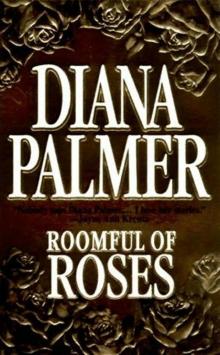 Roomful of Roses
Roomful of Roses Defender
Defender Bound by a Promise
Bound by a Promise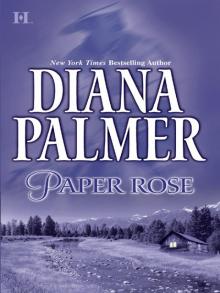 Paper Rose
Paper Rose If Winter Comes
If Winter Comes Circle of Gold
Circle of Gold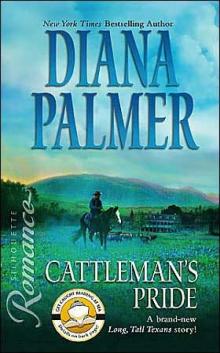 Cattleman's Pride
Cattleman's Pride The Texas Ranger
The Texas Ranger Lady Love
Lady Love Unlikely Lover
Unlikely Lover A Man of Means
A Man of Means The Snow Man
The Snow Man The Case of the Missing Secretary
The Case of the Missing Secretary Harden
Harden Tough to Tame
Tough to Tame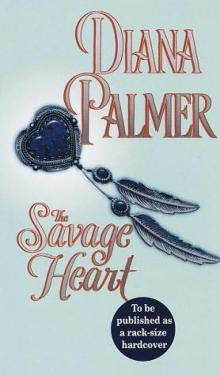 The Savage Heart
The Savage Heart